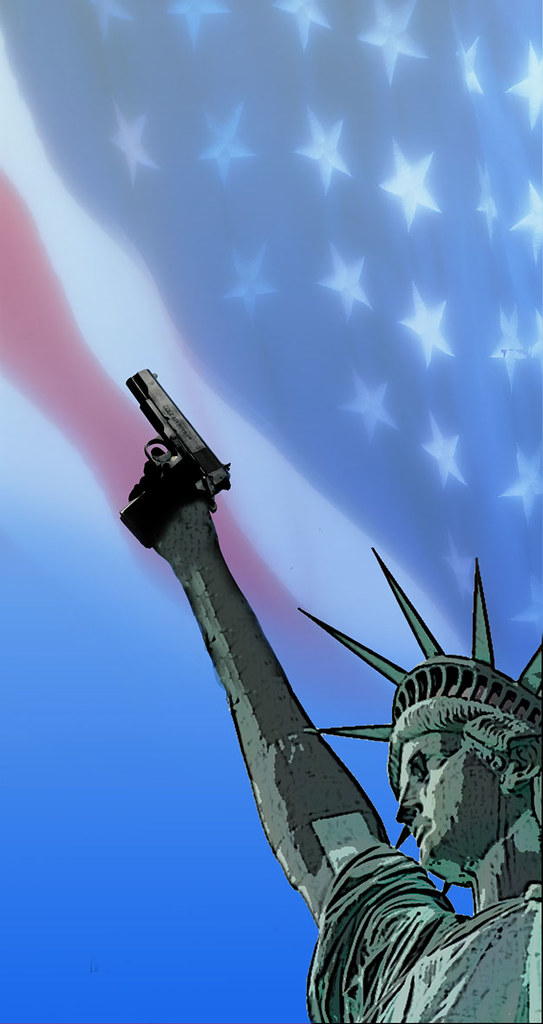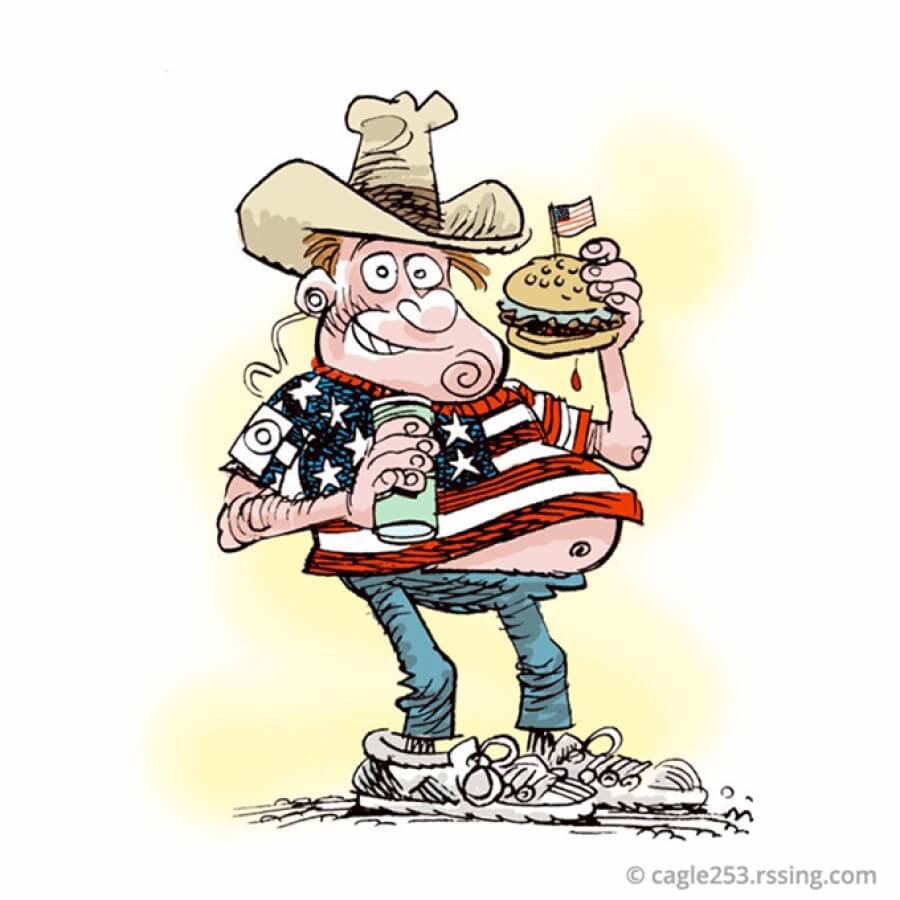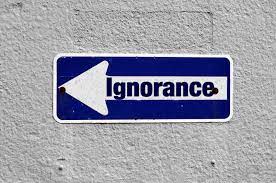Stereotypes (or generalizations applied to any group) can be hurtful, dangerous, and (more often than not) completely inaccurate. However, being aware of stereotypes and discussing the reasons they’re held and perpetuated can lead to less prejudice and judgement, and more insight and compassion. In this post, I’m hoping to shed some light on certain national stereotypes, particularly ones held by Poles about Americans. My hope is that by reading the stereotypes others have for us (which we know are not completely accurate), we might start to rethink some stereotypes we hold for other groups (which are also inaccurate). To compile this list, Tucker and I spoke to many of our friends, colleagues, and students here in Poland about some of the most common perceptions and stereotypes Poles (and other Eastern Europeans) have for the United States and Americans:

Aggressive and gun-loving: Many people in Poland feel that Americans are, in general, aggressive and somewhat forceful in the way they behave. Be it in a conversation or in a meeting at work, we seemingly assert ourselves at times and in ways that Poles might not. Many people also threw “gun-loving” in with the aggression. It seems most Poles believe everyone in the US owns a gun, and that we’re very proud of that fact.
Avid movie-goers/TV watchers: For Poles, the great American pastime is obviously watching movies. Many Poles are surprised when I tell them I don’t go to the movies every week or even every month back home. They also believe Americans spend the majority of their downtime at home watching TV. Their attitudes towards this tendency aren’t necessarily negative though, as it seems they feel like we have TV programs that are worth watching. Hmm.
Carefree and informal: According to Poles, Americans are quite carefree. We don’t choose to spend our time brooding or reflecting on the world’s problems. Instead we are very focused on our immediate environments and are likely to make sure we have time for fun. Americans are also seen as very informal; we tend to talk to our friends, our bosses, and strangers we’ve just met in the same way.
Diverse and accepting: In Poland, the United States is seen as a very diverse place, with people from different backgrounds all living together; however, there doesn’t seem to be such a favorable opinion of this. Many Poles link our diversity to some larger national issues like security and political correctness. Yet, at the same time this same diversity is seen to have bred a willingness to accept anyone as a fellow American.

Fast food-aholics: Poles usually believe we all eat McDonald’s or something like it everyday. They’re not very interested in the variety of restaurants or the seemingly healthy options either. To Poles, pizza and hamburgers are junk food, no matter who makes them or what goes into them. Even the food we eat at home seems like “fast food” to many Poles. Soup in a can? Pre-packaged croutons? Don’t we make anything ourselves?
Lazy: On the topic of not doing anything for ourselves, many Poles think Americans are a bit lazy. We buy already prepared food, we hire people to do the simplest repairs, and we drive everywhere (even to the mailbox). Our laziness is evident even in the clothes we choose to wear: sweatpants to the grocery store, t-shirts year round, slip on gym shoes – all adds up to the picture of a lazy American.
Optimistic: Similar to our being seen as carefree, Poles also describe Americans as optimistic. Whatever situation we’re in, we’re likely to spout out things like “everything will work out in the end” or “I prefer to see the glass as half-full”. This tendency is often seen as a laughable trait, or in some cases actually comes off as “fake”.
Patriotic: According to Poles, Americans love America. Every day I surprise Poles with my decision to leave America long-term. We are seen as people who don’t care to leave our beloved country, and in order to show our love and pride, we all wear American flag t-shirts, have American flag bumper stickers, and play the national anthem at every gathering.

Rich: Many people in Poland also believe that Americans are rich. We don’t ever have to worry about money. How could we, when we’re going out to eat every day and to the movies every week? We are often perceived as having the newest technology, the biggest cars, and the nicest houses possible.
Smile a lot: When Poles think of Americans, they think of chronic smilers. We smile no matter what emotion we’re feeling, and many times without a reason at all. This seems to irritate some Poles and amuse others, but either way, it is one of the first things they use to identify Americans abroad.
Straightforward/Direct: Typically Poles describe Americans as direct or even blunt when they speak. Courtesy words and titles are just not needed in America; we make things happen by saying exactly what we mean with no flowery language or hesitation for other people’s feelings.
Uninformed: Perhaps in part because of our patriotism, we are also perceived as uninformed and egocentric. Most people believe that no one in the US would be able to point to Poland on a map, let alone discuss world issues in an objective manner. Americans are seen as narcissists who care only about things that affect them directly.

I’m sure every American who read this list thought (at least once), “This one doesn’t apply to me at all!”, and every Pole who read it (at one point or another) probably thought, “I don’t think that about Americans!” And that’s exactly the point. We can’t rely on stereotypes; what is true for some, is not necessarily true for all. People don’t fit so easily into the labels we create for them. Whether the stereotypes are based on nationality, religion, race, gender, sexual orientation, or any other group, we need to remember that everyone is an individual and should be treated as such. Being aware of the stereotypes that exist and not allowing them to affect our judgement will take us all one step closer to equality and peace worldwide. #Weareallhuman
